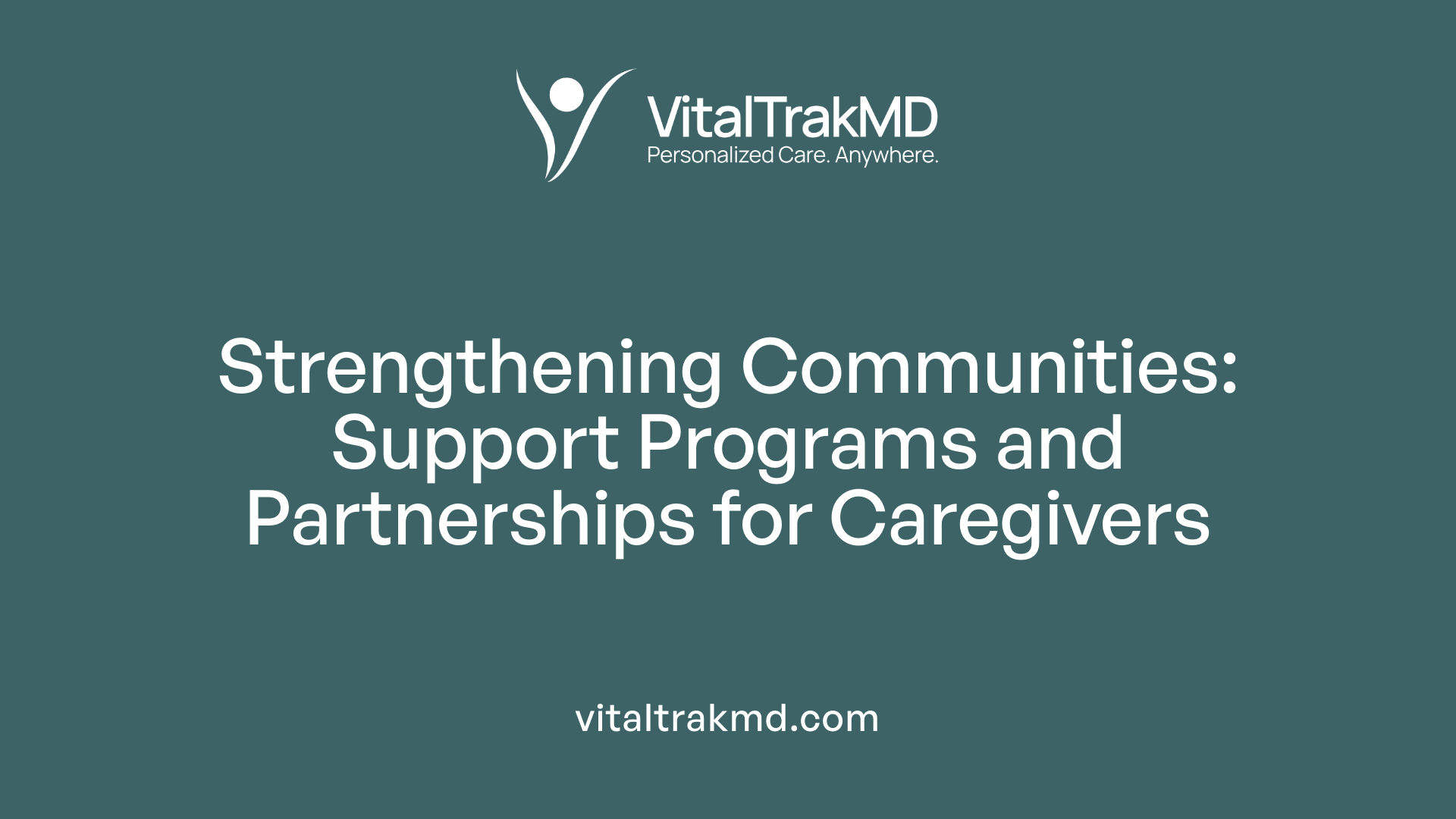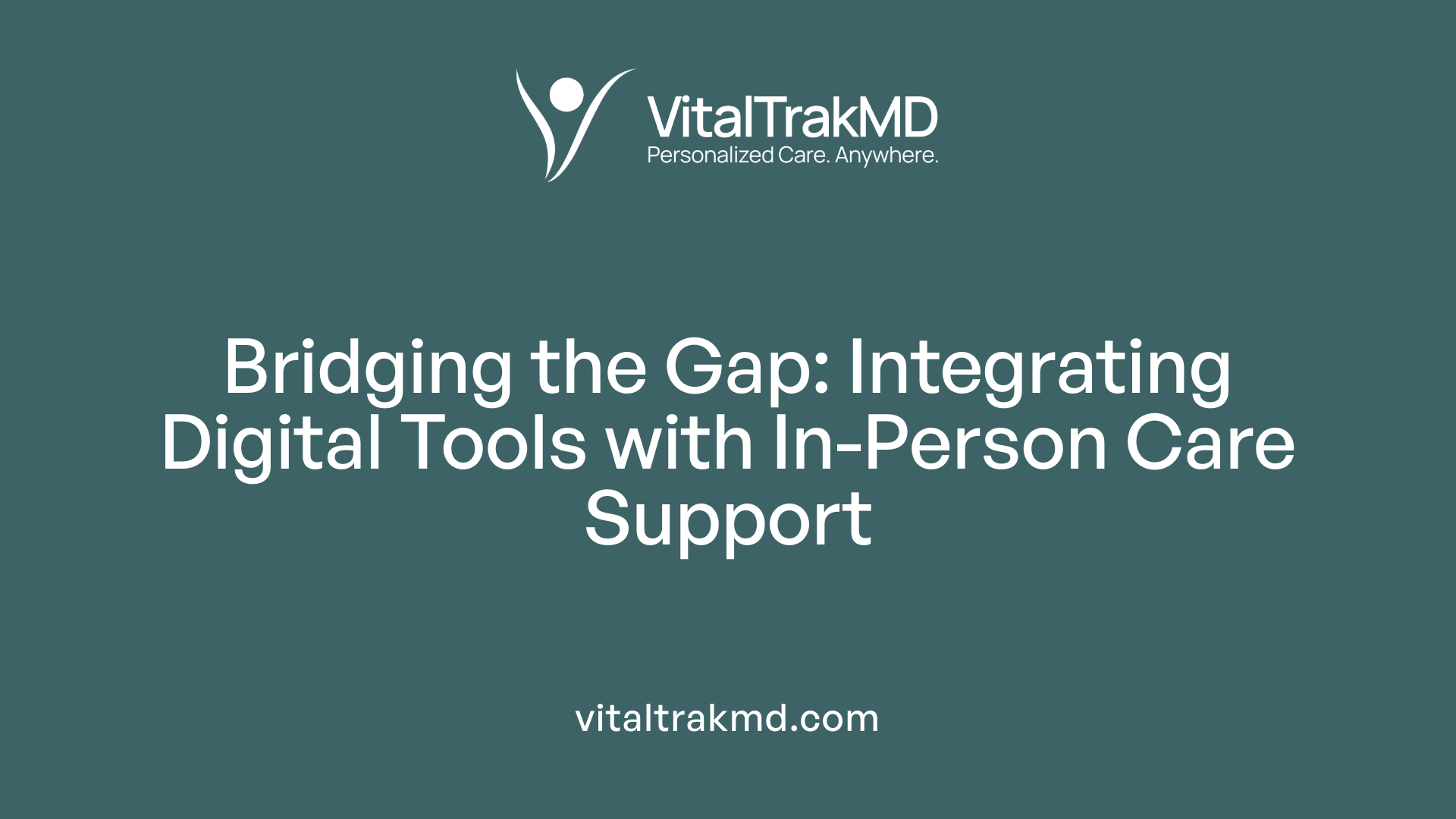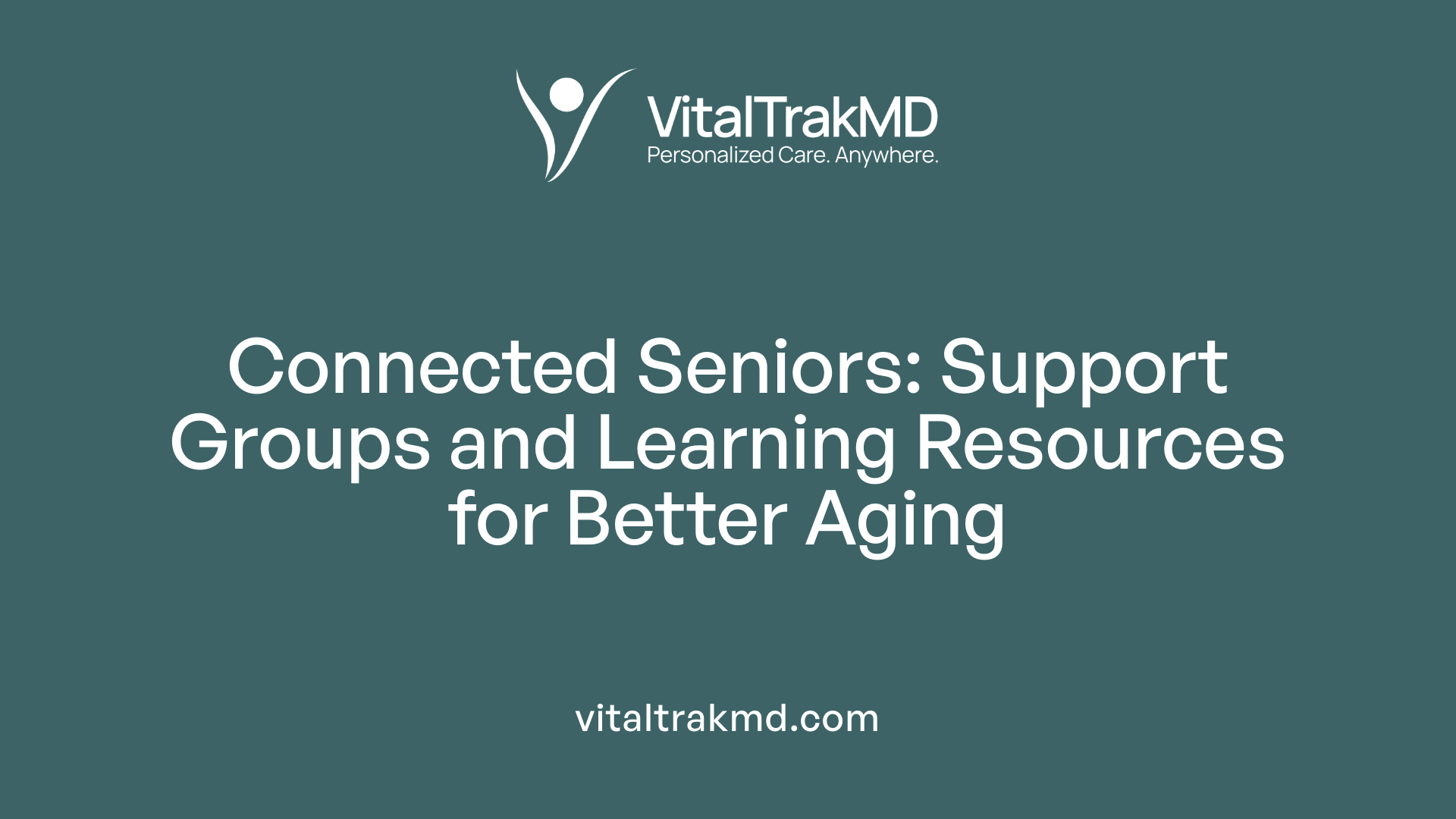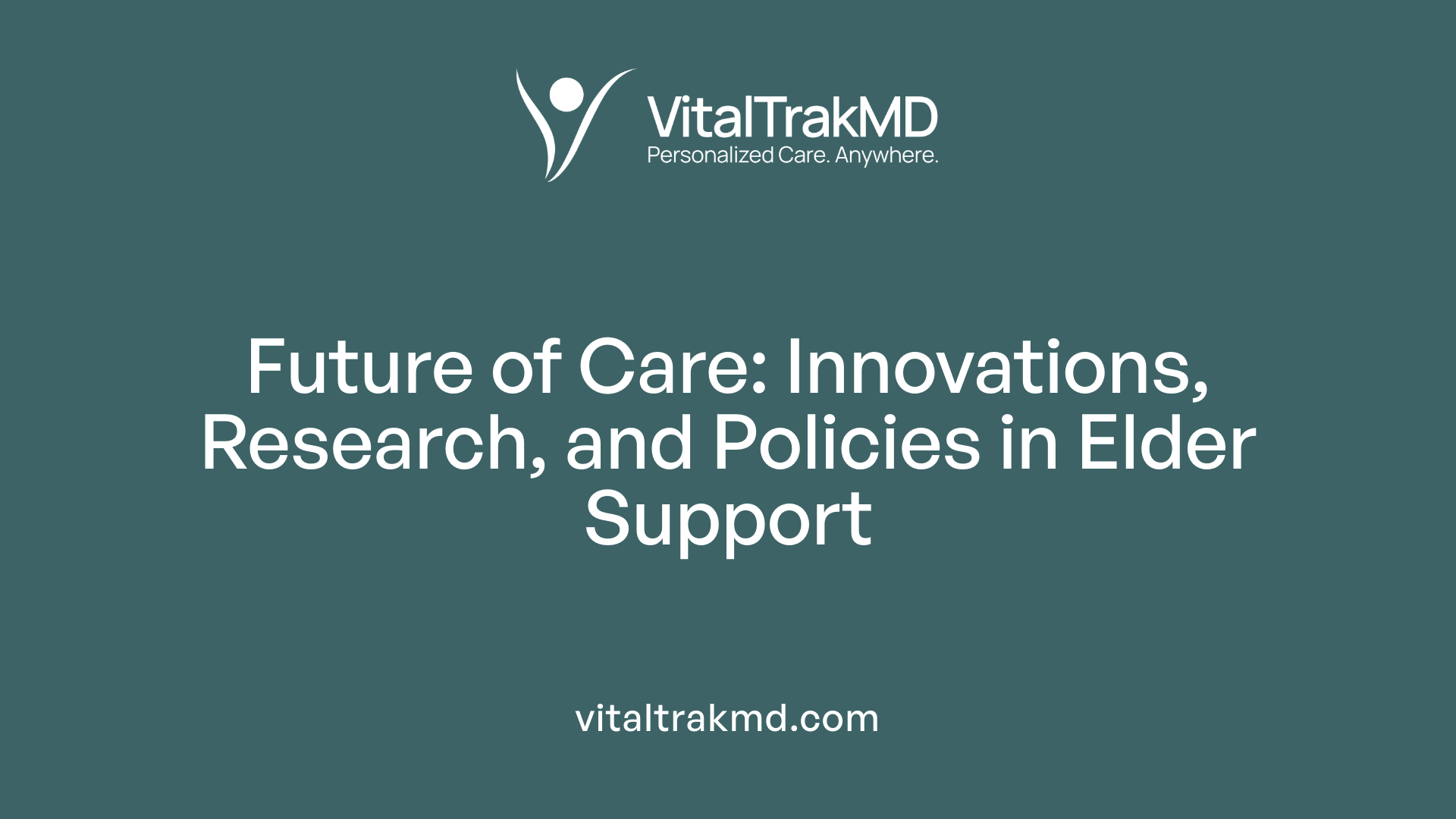Empowering Caregivers: Hybrid Support for Managing Senior Health

Understanding the Landscape of Caregiver Support
As the aging population grows, so does the importance of empowering caregivers through innovative, hybrid support models. These approaches blend digital and in-person resources to address the multifaceted needs of those caring for seniors, especially in managing complex health conditions and ensuring emotional well-being. This article explores the current support systems, policies, and emerging strategies that are shaping effective eldercare support for caregivers and older adults alike.
Community and Organizational Support Initiatives
 Support for caregivers extends beyond individual efforts and into structured programs organized at local, regional, and national levels. Initiatives such as Empowering Caregivers (OSEC), founded in 2014 in Grass Valley, California, exemplify community-based organizations providing essential services like in-home respite, peer support groups, education, and access to community resources. These programs aim to improve the quality of life for caregivers and their loved ones by offering non-medical, cost-free assistance that allows families to remain in a safe and healthy environment.
Support for caregivers extends beyond individual efforts and into structured programs organized at local, regional, and national levels. Initiatives such as Empowering Caregivers (OSEC), founded in 2014 in Grass Valley, California, exemplify community-based organizations providing essential services like in-home respite, peer support groups, education, and access to community resources. These programs aim to improve the quality of life for caregivers and their loved ones by offering non-medical, cost-free assistance that allows families to remain in a safe and healthy environment.
Community partnerships play a pivotal role in enhancing eldercare support. Organizations collaborate with entities like Connecting Point-211, the Aging and Disability Resource Center, and FREED to expand their reach and resource availability. Such collaborations facilitate a holistic approach, encompassing respite care, educational initiatives, and resource sharing that meet diverse caregiver needs.
Respite care services provide temporary relief, an essential component for caregiver well-being. Education initiatives, including support groups and caregiver training, empower families with knowledge and coping strategies. Community resources, from local senior centers to online platforms, ensure accessible support, especially for remote or mobility-challenged caregivers.
Effective caregiver support combines these elements with practical strategies that prioritize self-care, organization, and advocacy. Respectful communication with healthcare professionals and active participation in community programs can significantly reduce caregiver stress and burnout.
Overall, fostering strong community partnerships and robust organizational programs offers a comprehensive safety net for caregivers. This integrated approach not only alleviates emotional and physical strain but also promotes the sustainability of caregiving roles.
| Support Program Type | Examples | Purpose & Benefits |
|---|---|---|
| Local non-profit programs | Empowering Caregivers (OSEC) | In-home respite, education, peer support |
| Community partnerships | Connecting Point-211, FREED | Resource sharing, collaboration, expanded service access |
| Support groups | Senior living centers, online | Emotional support, social connection, shared experiences |
| Telehealth and mobile apps | Caregiver Teleconnection | Digital support, education, reducing caregiver burden |
Hybrid Support Models: Combining Digital and In-Person Assistance

How can caregivers be empowered?
Empowering caregivers involves providing them with comprehensive knowledge about the health needs of their loved ones. This includes training on managing chronic conditions, recognizing warning signs of illness, and ensuring safety at home. Access to education on caregiving skills and health management boosts their confidence and effectiveness.
Support networks play a vital role; connecting caregivers with family, friends, community resources, and professional support offers emotional reassurance and practical help. Promoting self-care, boundary setting, and mental wellness is essential for their long-term resilience.
Additionally, policy advocacy to improve access to services and support systems enhances their capacity to care while maintaining their own well-being. Ultimately, informed, supported, and empowered caregivers are better equipped to deliver safe, effective care, improving quality of life for both caregivers and their loved ones.
What are the benefits and barriers of mobile health (mHealth) interventions?
MHealth tools—such as apps, remote monitoring, and online resources—have gained popularity among caregivers. They support physical and mental health, help reduce caregiver stress, and increase self-efficacy in caregiving tasks. These digital platforms can connect caregivers with healthcare providers, peer groups, and caregiving information conveniently from home.
However, barriers exist. Digital literacy can be a limiting factor, especially for older caregivers or those with limited internet experience. Accessibility varies, with language barriers, costs, and inconsistent internet service further complicating use. These challenges tend to impact diverse sociodemographic groups disproportionately.
To address these issues, hybrid models combining digital interventions with face-to-face support are gaining attention. Programs like the 'Caregiver Teleconnection' offer remote assistance while providing personal interaction, which can improve engagement and outcomes. Ongoing research is essential to optimize these integrated approaches, ensuring they meet a broad range of caregivers’ needs.
Workplace Support Policies for Caregivers

What strategies are effective for supporting caregivers in the workplace?
Employers can make a meaningful difference by establishing supportive policies that help employees manage caregiving duties alongside their work responsibilities. Effective strategies include fostering an open dialogue about caregiving challenges, providing managerial training to recognize and accommodate employees' needs, and implementing flexible work arrangements such as remote work options, adjusted hours, reduced hours, or job sharing.
In addition, expanding paid and unpaid leave policies ensures caregivers can attend to urgent needs without fearing job loss. Legal protections play a crucial role in safeguarding employees’ rights; laws like the Family and Medical Leave Act (FMLA) and the Americans with Disabilities Act (ADA), along with state-specific family leave provisions, offer important job security and rights to leave. Support programs such as coaching and online resources further help caregivers cope, often resulting in reduced stress and improved job performance.
Overall, these integrated measures promote an environment where caregiving employees feel valued and supported, encouraging their continued participation in the workforce.
Supporting Older Adults Through Support Groups and Educational Resources

What are the benefits of senior support groups?
Support groups play a vital role in the lives of older adults by providing a safe space to share experiences, challenges, and feelings. They help reduce feelings of loneliness and social isolation, which are common among seniors and can negatively impact mental health. Participating in these groups fosters connections with peers, creating a sense of community and belonging.
Additionally, support groups contribute to improved emotional well-being by offering encouragement and understanding. They also serve as platforms for education about common health issues such as grief, chronic illnesses, and memory care, enabling participants to better manage their conditions and navigate complex healthcare systems. Often embedded within broader wellness programs, these groups promote holistic health by integrating social, emotional, and physical support to enrich the quality of life for older adults.
Many senior living communities host diverse support groups tailored to meet residents’ specific needs. These might include grief support circles, caregiver support groups, chronic illness management sessions, or memory care groups. External organizations, such as local senior centers and nonprofits, also facilitate specialized or general groups, sometimes offering virtual or hybrid options. These inclusive opportunities encourage participation regardless of mobility or geographic barriers, making vital social and emotional support accessible to all.
How do hybrid or virtual support options enhance accessibility?
Hybrid and virtual support groups greatly expand access for seniors and caregivers who face mobility, health, or geographic challenges. Participants can join from the comfort of their own homes, a benefit that is especially important for those with limited mobility or chronic health conditions.
These digital options allow for flexible scheduling and participation, reducing the need for transportation and enabling involvement during times that suit the participant’s routine. Virtual platforms ensure confidentiality and privacy, which can encourage more open sharing. Moreover, they open doors to a broader network of support, connecting individuals with peers and professionals regardless of physical location.
By integrating online support communities with in-person groups, organizations can create inclusive programs that meet diverse needs. This hybrid model not only enhances social engagement but also ensures continuity of support in times of health crises or other emergencies. As technology becomes more accessible and user-friendly, these options are expected to become an integral part of senior wellness initiatives.
Research, Policy, and Future Directions in Elder Care Support

What does research say about mobile health interventions and social determinants?
Recent studies highlight that mobile health (mHealth) interventions are increasingly being used to support caregivers. These digital tools enable caregivers to connect with professionals, access resources, and manage their own health needs more effectively.
Research indicates that mHealth solutions are generally well-received by caregivers, offering a convenient way to reduce their burden while promoting physical and mental well-being. For example, apps and online platforms can improve caregivers’ confidence, knowledge, and emotional health.
However, these interventions alone are not enough. A significant challenge is the social determinants of health—factors like socioeconomic status, education, language barriers, and digital literacy—that influence how caregivers access and benefit from such technologies. Many studies reveal that most caregiver support programs only gather demographic data rather than actively address these social factors.
Barriers such as limited internet access, language differences, and costs can prevent vulnerable groups from fully benefiting from mHealth tools. Consequently, some experts suggest adopting hybrid support models that combine digital and in-person assistance, which can better serve diverse populations.
Efforts are underway to improve system navigation, including educating caregivers and healthcare professionals, creating centralized resources, and developing more inclusive, person-centered systems. Recognizing and addressing social determinants is crucial for designing equitable interventions that truly support all caregivers.
By integrating research, policy initiatives, and innovative technology, future eldercare support can become more accessible, effective, and responsive to the complex needs of caregivers and the communities they serve.
A Collective Effort for Better Elder Care
Empowering caregivers through hybrid support systems, workplace policies, community programs, and technological innovations is essential for a sustainable eldercare model. Collaboration among organizations, healthcare providers, employers, and policymakers can lead to more resilient, accessible, and person-centered care, ultimately improving quality of life for seniors and reducing caregiver burden. Ongoing education, research, and adaptable support strategies will continue to shape the future of eldercare, ensuring no caregiver or senior is left behind.
References
- Empowering Caregivers: Home - One Source
- [PDF] Dementia Capable Southern Arizona – Empowering Caregivers ...
- A Better Balance: Empowering Caregivers to Succeed at Work and ...
- Empowering Caregivers: A Business Case for Reassessing ...
- Engaging Caregivers: A Program for Healthcare Workers
- The Benefits of Support Groups for Older Adults and Caregivers
- mHealth Interventions to Support Caregivers of Older Adults
- Roles and experiences of informal caregivers of older adults in ...
Recent articles
Want to Feel Better and Live Healthier?
Join hundreds of patients taking control of their health with personalized care that fits their life – not the other way around.
Rated 4.8/5 by 32+ customers







